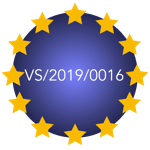Foreword
A European Project that’s gone beyond any expectation, a real sharing of ideas and proposals:
this is the best and most concise conclusion I find for this Project and that our website engineer chose to define it.
Indeed we were aware, my team and I, of the technical and juridical complexity of the whole matter: analysing the change in working conditions, the change in the finance business, in the way the financial products are on sale, the change in the composition of a workforce as years go by, older employees retire or pre-retire happy to do it, while much younger and much more motivated women and men enter this industry.
At the same time we have believed in the Fitness Check of the EU Directives for the Employee Involvement and have decided to try and give our contribution to this Fitness Check, proud of a European legislation made to manage rights in a changing economy and society, a European legislation needing this check to keep up with such an impressive speed of this change.
Together with us, many colleagues, comrades and friends, elected by trade-unions and employees to manage their EWC and/or their national union, have believed in the opportunity and value of this Project, but with us we have also had (and will have, I am sure) some outstanding employers’ associations top responsible persons, who share the goal of industrial relations well working in this continuous change as well as a up-to-date EU legislation.
The key word of this project has been “change”. This word often causes fear.
We have wanted to turn such a fear into a more positive attitude able to see the change as an opportunity, as a perspective to have a future and as a challenge not to be avoided but to be taken to grow up.
Managing fear to keep it under control requires a willingness supported by awareness and knowledge to be provided by vocational training for employees of course but also fort their actual or potential trade-union reps who need to learn how to organise employees 4.0 by meeting their demands. Managing change requires tools to be used by competent trade unions reps and these tools have to be up-to-date with the speed of change: they are collective bargaining tools, information/ consultation tools whose sources are more and more the EU Directives for the Employee Involvement.
As well as trade-union approach, the concerned Directives need to be up-to-date.
Our little contribution in this respect may get stronger as long as we are able to involve our social partners in our goals and share with them all possible ideas and initiatives, being aware of the diversity of our respective role but bearing in mind the added value of an effective cooperation. Our voice has nevertheless to be spread and supported in the EU institutions through a link with MEPs whom we are in tune with and whom we can coordinate our action with. So these have been the concepts behind our goals that this action has in the end attained.
We are confident in such a follow-up of this Project, having clearly agreed with our social partners that we will be able to share the work and the effort to put this agenda forward.
Mario Ongaro • Project Manager

